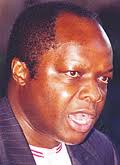Govt passes another “Kabaka taming” law
By George Murumba
3rd Nov 2010
The controversial Kampala Capital City Bill 2009, a bill whose NRM supporters have said will “tame” Buganda Kabaka Ronald Mutebi and shrink his sphere of influence, has been passed by parliament.
The Bill will become law as soon as President Museveni assents to it. When he does, Kabaka Mutebi’s sphere of influence will be significantly reduced because the city’s boundaries within his Kingdom will be redefined.
The new boundaries of Kampala city will cover Kampala Central, Nakawa, Kawempe, Makindye, Kira town council and Makindye-Sabagabo sub-county. Makindye-Sabagabo sub-county covers the parishes of Massaja, Ndejje, Busabala, Bunamwaya, Lubowa and Seguku.
In what some have described as “…a poor attempt by central government to appease Buganda Kingdom”, a much smaller Mengo Municipality created. The new Mengo Municipality will include Rubaga Division which has Buganda’s important cultural sites like Bulange, Kasubi Tombs, and the Kabaka’s palace itself.
The new law will also create a Kampala Metropolitan Authority under an Executive Director appointed President Museveni. The new Executive Director, effectively a Chief Executive Officer, will also be the Chief Accounting Officer. He or she will take over the management of the city including vast areas over which Buganda’s Kabaka previously enjoyed influence.
The Executive Director will only be answerable to the Minister of Local Government and will be responsible for the implementation of lawful council decisions, presentation of an annual budget to the Council, advising the mayor and council on NRM government policy, and overseeing the delivery of services to the city population.
He or she will also have powers over physical planning, infrastructure development, transport systems, land management and most crucially including the allocation of land, road construction, and revenue collection and management.
A new Lord Mayor, his deputy, chairpersons and vice chairpersons of divisions will be elected from amongst councillors elected under adult suffrage by secret ballot. The Lord Mayor will remain the political head of district. He or she will also preside over all council meetings and perform “…ceremonial and civic functions”.
According to the new law, the city council may be dissolved by the Local Government Minister with the approval of Cabinet. The grounds for dissolution of the council are among other things its failure to comply with the provisions of the law, or “…where it has become extremely difficult or impossible for the council to function”.
At the time it was tabled, critics of the Kampala Capital City Bill argued that it was all a sinister ploy by President Museveni’s NRM government to use the law to forcefully and undemocratically take control of opposition strongholds like Kampala.
Others argued that it was all part of a well crafted plan by Museveni’s government to “tame” the Kabaka of Buganda over what one NRM supporter told Uganda Correspondent today was the “…Kabaka’s belligerence towards our government”.
The government however maintained that because of the importance of the Entebbe-Kampala corridor as an entry into Kampala, there was need to have controlled planning and development in this area.
Local Government Minister Adolf Mwesige under whose docket these new changes fall is also on record saying that “…at the moment you have a redundancy in the council with an executive committee but there is garbage all over the city, dust hanging over the city, there are flies everywhere although there is an elected leadership”.
He added that the government merely wants to create a technical representation in the leadership of the council. “…We think with this group in place, the problems of garbage, floods, and diseases like cholera will be no more and the ordinary people will benefit”, Mwesige said. END. Please log into www.ugandacorrespondent.com every Monday to read our top stories and anytime mid-week for our news updates.
![]()


